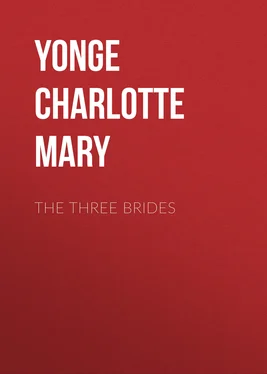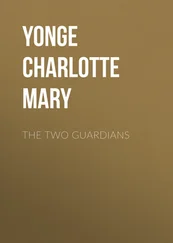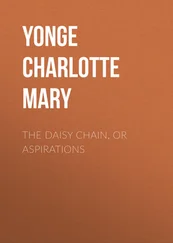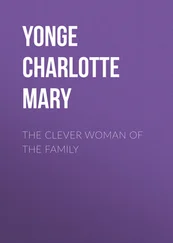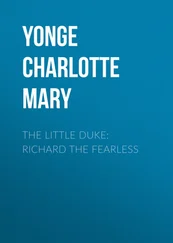Charlotte Yonge - The Three Brides
Здесь есть возможность читать онлайн «Charlotte Yonge - The Three Brides» — ознакомительный отрывок электронной книги совершенно бесплатно, а после прочтения отрывка купить полную версию. В некоторых случаях можно слушать аудио, скачать через торрент в формате fb2 и присутствует краткое содержание. Жанр: foreign_prose, literature_19, Европейская старинная литература, foreign_antique, на английском языке. Описание произведения, (предисловие) а так же отзывы посетителей доступны на портале библиотеки ЛибКат.
- Название:The Three Brides
- Автор:
- Жанр:
- Год:неизвестен
- ISBN:нет данных
- Рейтинг книги:4 / 5. Голосов: 1
-
Избранное:Добавить в избранное
- Отзывы:
-
Ваша оценка:
- 80
- 1
- 2
- 3
- 4
- 5
The Three Brides: краткое содержание, описание и аннотация
Предлагаем к чтению аннотацию, описание, краткое содержание или предисловие (зависит от того, что написал сам автор книги «The Three Brides»). Если вы не нашли необходимую информацию о книге — напишите в комментариях, мы постараемся отыскать её.
The Three Brides — читать онлайн ознакомительный отрывок
Ниже представлен текст книги, разбитый по страницам. Система сохранения места последней прочитанной страницы, позволяет с удобством читать онлайн бесплатно книгу «The Three Brides», без необходимости каждый раз заново искать на чём Вы остановились. Поставьте закладку, и сможете в любой момент перейти на страницу, на которой закончили чтение.
Интервал:
Закладка:
“She looks very ill, poor thing,” said Julius.
Here the bull terrier became assiduous in his attentions to Rosamond; and between his master’s calls and apologies, and her caresses and excuses, not much more was heard, till Julius asked with mock gravity, “And are these all you’ve brought over, Herbert?”
“Yes, all; I’d half a mind to bring the two greyhounds, but my father thought they would get into trouble in the preserves, and there isn’t room at Mrs. Hornblower’s place,” he answered, with apologetic simplicity.
“What a pity Durham has been reduced!” said Mr. Bindon, dryly. “It would have been the right preferment for Bowater. The Bishop was obliged by statute to keep a pack of hounds.”
“But, sir,” expostulated the deacon, turning to the Rector, colouring all over his honest rosy face, “you don’t object! You know, of course, I’ve given up sport,” he added ruefully; “but only just as companions!—Ain’t you, Rollo?” he added, almost with tears in his eyes, and a hand on the smooth black head, belonging to such a wise benignant face, that Rosamond was tempted to pronounce the dog the more clerical looking of the two.
“You are very welcome,” said Julius, laughing, “provided you can manage with the old women’s cats. I should find such companions rather awkward in pastoral visits.”
“I’ll teach them, sir! You may depend on it! We did have a little flare-up yesterday, but I showed them the sense of it. You might teach those dogs anything!—Ha! what then, Tartar! Halloo, Mungo! Rats, rats, rats!”
A prodigious scratching and snorting was audible in what had been a cellar of the quondam Rectory; and Rollo, becoming excited, dashed up to the scene of action, with a deep bass war-cry, while, to Rosamond’s great amusement, “rats” was no less a peal to Rector and senior; and for the next quarter of an hour the three clergymen moved bricks, poked with their sticks, and cheered on the chase till the church clock struck one, the masons began to return from dinner, and the sounds of the bell at the Hall recalled the party to order.
“There, Rose! Our first day!” said Julius, aghast.
“You’d better come to lunch at my rooms,” said the young curate, eagerly. “Do! Mother has brought the jolliest hamper! Game-pie, and preserved magnum-bonums, and pears off the old jargonelle.—Come, Lady Rosamond, do.—Come along, Bindon! There’s such a dish of damson-cheese! Do!”
That “ do ,” between insinuation and heartiness, was so boyish, that it was quite irresistible to the lady, who consented eagerly, while Julius wrote a word or two on a card, which he despatched to the Hall by the first child he encountered. In a few minutes they reached the nice clean bay-windowed room over the village shop, comically like an undergraduate’s, in spite of the mother’s and sister’s recent touches.
There ensued a resolute quieting of the dogs, and a vigorous exertion of hospitality, necessitating some striding up and down stairs, and much shouting to Mrs. Hornblower and her little niece, who rejoiced in the peculiar name of Dilemma; while Rosamond petted Tartar upon her lap, and the two elder clergymen, each with an elbow against the window-frame and a knee on the seat, held council, based on the Rector’s old knowledge of the territory and the curate’s recent observations during his five weeks’ sojourn.
The plans to be put in force next week were arranged during the meal, and the junior observed that he would walk home to-night and back on Saturday evening, since after that he should be tied pretty fast.
And he started with Julius and Rosamond on their further progress, soon, however, tumbling over another stone wall with all his dogs, and being only heard hallooing to them as they yelped after the larks.
“That is a delicious boy!” said Rosamond, laughing merrily. “A nice fellow—but we mustn’t make it a custom to be always going in to partake of his hampers, or we shall prey inordinately on Mrs. Bowater’s preserves.”
“He was just like the hero of
“Oh, I have a plum-cake,
And a rare feast I’ll make.”
I do like a boy with a sweet tooth!”
“Like him! Of course I do. The Bowaters are like one’s own kindred! I only hope I shall not spoil him.”
“Hasn’t his mother done that for you?”
“I wish he had spent a year or two at Cuddesdon! I ought to have seen him before consenting to give him a title at once, but his father and Jenny wished it so much. Ah! come in here. Bindon said Lucy Martin was a case for a lady.”
Rosamond’s hearty good-nature was much more at ease among ailing old women than prim school-children, and she gave great satisfaction in the cottages.
Julius did not of course come as a stranger, and had a general impression as to names and families; but he had been absent, except on short visits, for five years, so that Rosamond declared that this was a staple of his conversation: “Then it was Tom Deane—no, it was John Deane that married Blake’s son—no, it was Blake’s daughter that died who is living in the next house.”
They finished with a long and miry lane, lying along the valley, and leading to the cottages of a little clan, the chief of whom seemed to be a large-boned lively-eyed old dame, who, after minute inquiries after “the Lady Poynsett,” went on, “And be it true, Master Julius, as that young gentleman of Squire Bowater’s is one of your passons?”
Julius admitted the fact.
“And be ye going to put he up in the pulpit to preach to we? ’Pon my word of honour, says I to Sally when her telled I, we shall have little Dick out of the infant-school next!”
“We’re all young, Betty! Can’t you put up with any one that is not older than yourself! I’m afraid he would hardly be able to get up the pulpit stair.”
The Rector’s reply delighted Betty; but she returned to the charge. “No, no, sir, I be coming to hear ye next Sunday. Sally have turned my black bonnet a purpose. It be one of the Lady Poynsett’s, as her gave I when my old gentleman was took two years after the Squire—when bonnets was bonnets, you know, ma’am. Now tell me true, be ye to preach morning or arternoon, sir?”
“In the morning, I hope, Betty.”
“Then I’ll be there, Master Julius, to the third seat from the front; but it ain’t becoming for a woman of my age, seventy-nine come Christmas, to sit under a slip of a lad as hasn’t got the taste of the birch off his back.”
“That’s too bad, Betty,” broke in Rosamond, speaking out of conviction. “Mr. Bowater isn’t so young as he looks, and he was too good a boy ever to need the birch.”
“All the wuss for he,” retorted the undaunted Betty. “Spare the rod, and spile the child.”
The village wit was left triumphant, and Julius proposed to return by a cross-road leading into the plantations. Suddenly a scud of rain mixed with whirling yellow leaves sent them hurrying into a cart-shed, where, with a sudden start, they found themselves rushing in on some one. Who was it? A girl—a young lady. That was evident, as Rosamond panted out, “I beg your pardon!” and the next moment there was the exclamation, “Mr. Julius Charnock! You don’t remember me? Eleonora Vivian!”
“Miss Vivian! you have the advantage of me,” said Julius, a little stiffly. “Let me introduce my wife.”
The hands met, and Rosamond perceived in the failing light a very fine-looking maiden, with a superbly carried head and neck, simply dressed in gray cloth. “Are you sheltering here, or are you sketching?” she asked, seeing some paper and drawing materials.
“I was giving a lesson. See,” exhibiting some bold outlines on large paper. “Does not my pupil do me credit?”
Читать дальшеИнтервал:
Закладка:
Похожие книги на «The Three Brides»
Представляем Вашему вниманию похожие книги на «The Three Brides» списком для выбора. Мы отобрали схожую по названию и смыслу литературу в надежде предоставить читателям больше вариантов отыскать новые, интересные, ещё непрочитанные произведения.
Обсуждение, отзывы о книге «The Three Brides» и просто собственные мнения читателей. Оставьте ваши комментарии, напишите, что Вы думаете о произведении, его смысле или главных героях. Укажите что конкретно понравилось, а что нет, и почему Вы так считаете.
